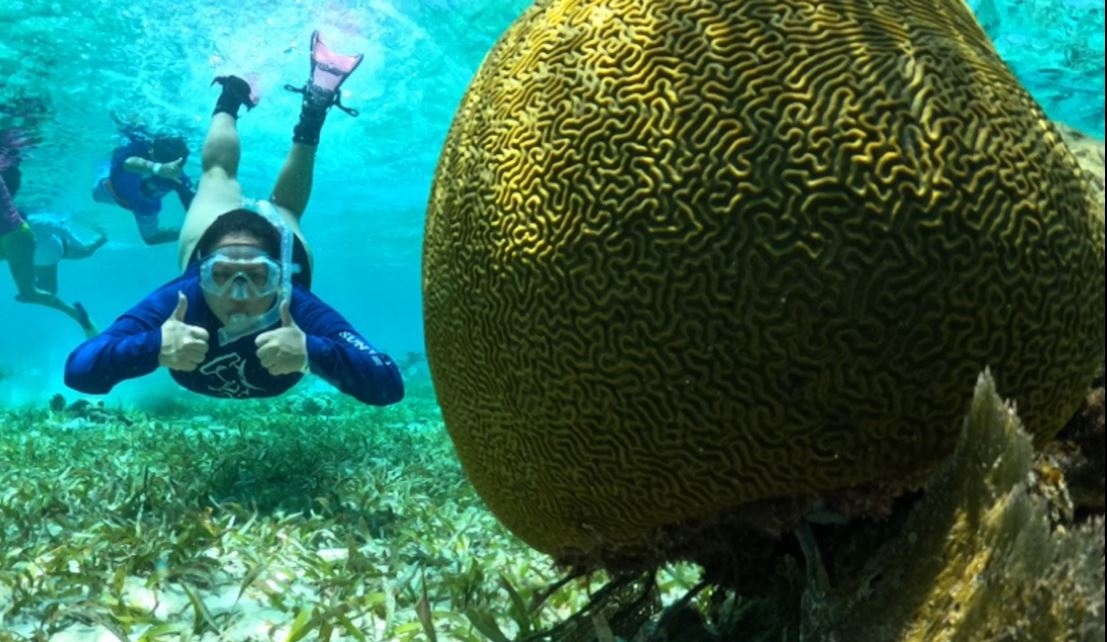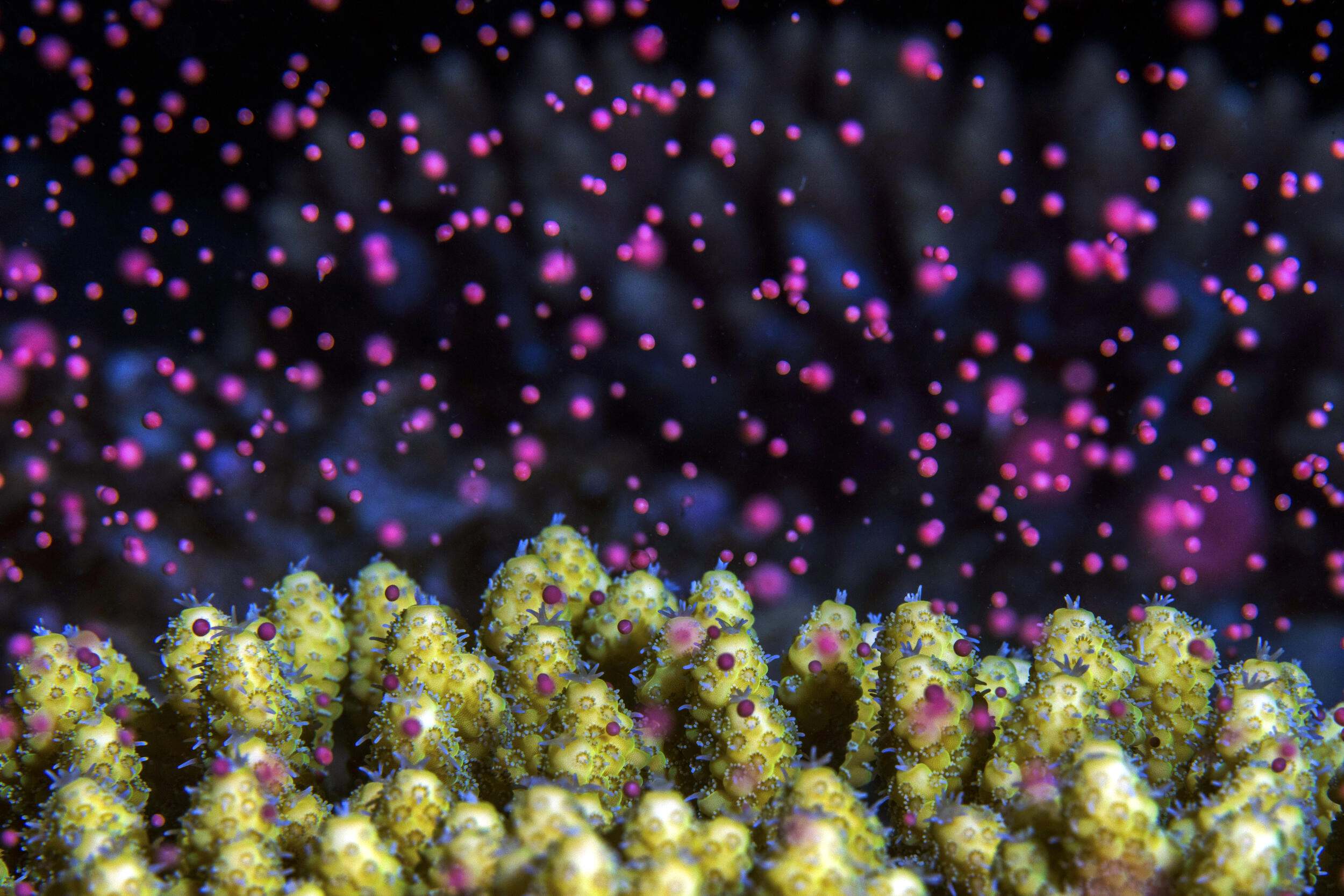This study presents the case that increasing concentrations of atmospheric CO2 may be an additional process driving a shift from corals to seaweeds on reefs. The authors tested the combined effects of ocean acidification and algal–coral competition on coral survivorship and growth through simultaneous manipulation of competitors and CO2 levels in an experiment carried out on Heron Island Research Station (HIRS), southern GBR.
In the experiments, the authors demonstrate that ocean acidification enhances the ability of a common algae (Lobophora) to kill, and potentially out-compete, a coral (Acropora). Only corals in contact with live seaweeds showed significant mortality, and mortality was exacerbated by elevated pCO2. This indicates that coral mortality can be attributed to the presence of, and interaction with, seaweeds. Accordingly, increased coral mortality with increasing pCO2 is therefore likely to be a consequence of CO2, enhancing the competitive strength of the seaweeds.
These results suggest that coral (Acropora) reefs may become increasingly susceptible to seaweed proliferation under ocean acidification, and processes regulating algal abundance (e.g. herbivory) will play an increasingly important role in maintaining coral abundance.
Author: Diaz-Pulido, G., M. Gouezo, B. Tilbrook, S. Dove, and K.R.N. Anthony
Year: 2011
View Full Article
Ecology Letters 14: 156-162. doi:10.1111/j.1461-0248.2010.01565.x


